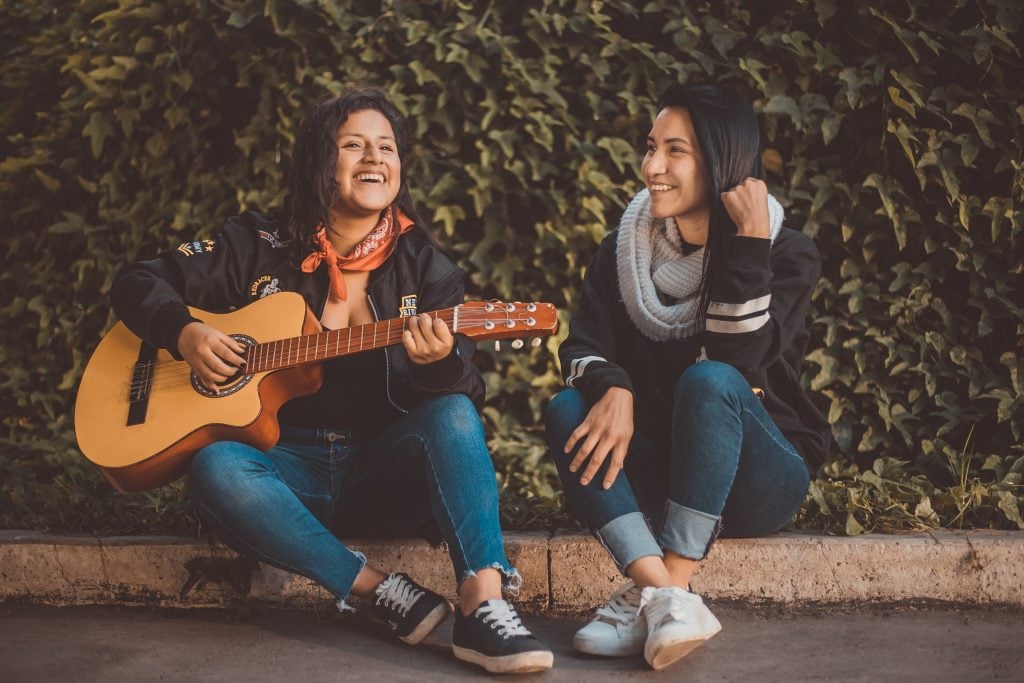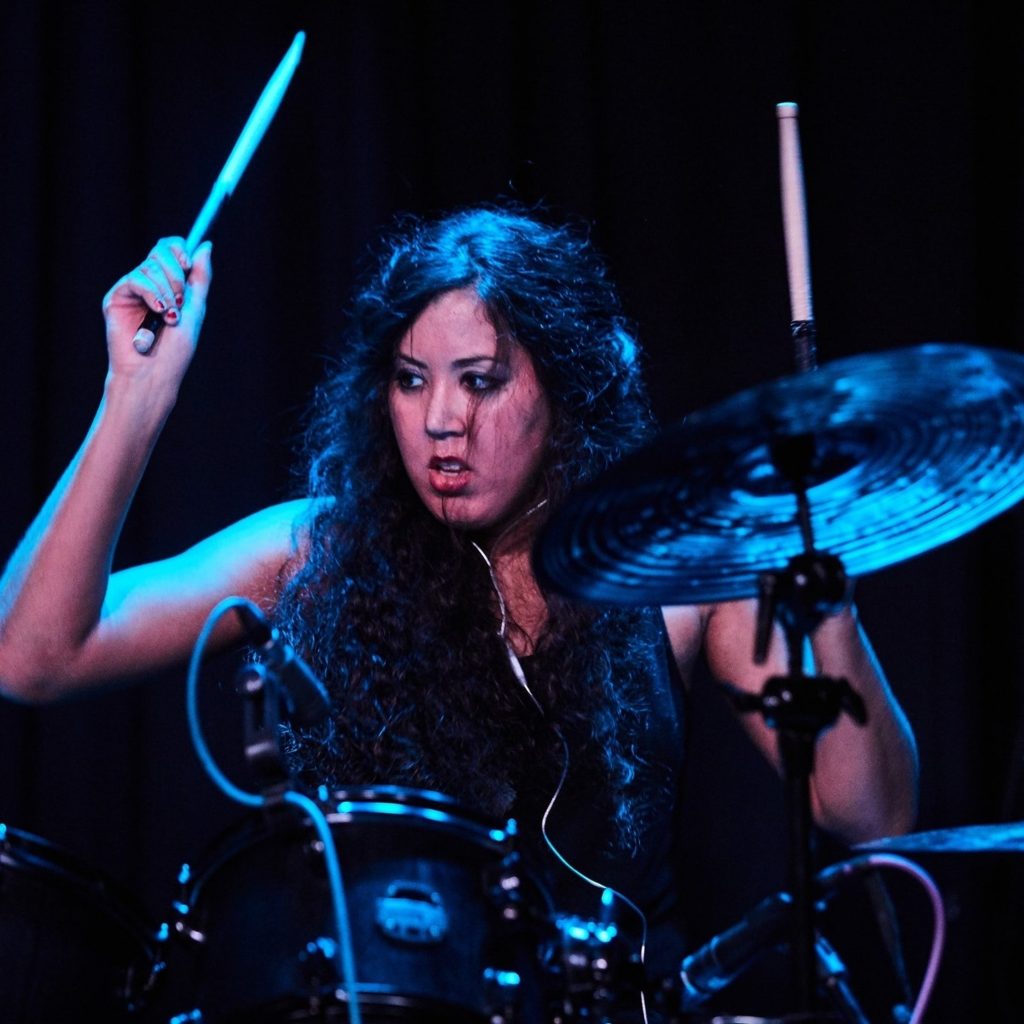Finding Your Place in the Music Industry
It can be intimidating to start learning a new instrument, especially for those who are underrepresented in the music sector. Drum tutor Flo Toch feels passionate about inclusivity in the music industry. They have a firm belief that music is for everyone regardless of age, background, experience, or anything else you can think of. With this in mind, Flo has put together a guide with some tips and tricks that helped them get started, and how we can all keep music inclusive. Read on to hear what Flo has to say.
Although we’re starting to see the tide turn with an increasing representation of LGBTQ+ artists in the music industry, we still need to do a lot more to make music and music education a welcoming place for marginalised people. In this post, I’m going to discuss some ways to explore music for everyone, and that really does mean everyone!
Find your people
The first, and easiest, step is to find yourself a role model or two. Seeing someone relatable play an instrument can give you the confidence to get started. It can also keep you going when you hit rough waters – if they can do it, so can you! There’s an old saying: “You can’t be what you can’t see”. In a world that often presents a very narrow view of who can play music, finding a relatable role model can be a great source of inspiration, confidence, and enjoyment. It’s a great starting point that makes the path to music-making much clearer.

There are a plethora of incredible musicians playing covers on YouTube, creating community on Twitter, and posting clips on Instagram: start with She Shreds for guitar & bass and let their artist features take you down the rabbit hole. If drums take your fancy, Tom Tom Magazine is what you need. Try searching for your favourite songs along with “[insert instrument here] cover” on YouTube and see what comes up – you might be pleasantly surprised! There are millions of players out here, some of my favourites are Sarah Thawer, juliaplaysgroove, Nandi Bushell, Helen Ibe Music, and Melanie Faye, to name a few. female:pressure is a wonderful international and trans-inclusive resource that regularly features artists on social media & podcasts. Connected Sounds and Homoground are podcasts that showcase LGBTQ+ musicians. Whatever genres and instruments you like, there are role models in the music industry for you. You only have to know where to look!
Support your role models
Sharing that knowledge – where to look – is a way we can all push for wider representation. Supporting outlets that promote marginalised musicians (like those mentioned above) is a great way to make music more accessible for all, whether that’s by following on social media, getting involved in the community, telling friends, or buying merch. As well as promoting artists, such organisations often act as hubs, providing educational resources and community discussion spaces. These outlets tend to rely on community support, so our backing is crucial for their survival and the well-being of music fans everywhere. Especially in a climate that marginalises difference, it’s vitally important to see the whole spectrum of human experience and variety reflected in music. After all, isn’t that what art is all about?
Get started!

So, you’ve spent some time online, and learning an instrument is starting to seem…doable. There are a few practicalities to take care of that might feel challenging, depending on your instrument of choice. Buying gear can feel like a big commitment, with enough jargon to put even the most confident off. But it needn’t break the bank or require a music degree; especially as a beginner, something second-hand to get you going will likely do you well until you’ve found your feet. A music teacher can provide recommendations or help you choose between listings online, but as long as it works and is an appropriate size (generally speaking, child-size instruments for children and full-size ones for adults – it needn’t be more complicated than that!), you can get started on it. Ask round friends and community groups too, as you never know who has an old guitar collecting dust.
Find a music teacher that fits
Finding a teacher can be a great way to get started learning an instrument. They provide feedback, demonstrate progress, and set structured tasks, a nice contrast to the overwhelming amount of instructional videos online! If you decide to look for a teacher, ask them questions, even if it’s just to say you’re nervous. Anyone worth their salt will be happy to talk to you before booking you in. Would you prefer group lessons with a friend? Or one-to-one lessons after a taster session? Look for reviews & double-check their profile; most are familiar with teaching beginners, but something as simple as the tone of their writing can make all the difference.
Learning an instrument can be life-changing, and the confidence-building that happens alongside learning is astounding. It’s important to find someone you like to accompany you on this journey, and if you’re looking for something specific in a tutor, ask! Even if they can’t help, they might know someone in the music industry who can.
Read more about the benefits of learning an instrument.
Share the love
This last one might not be for everyone, but share your playing online! Watching beginners is incredibly encouraging for other would-be musicians. Noticing your own progress can also be an empowering experience, particularly in the early stages. Who knows – perhaps you could become somebody’s representation. And you never know what conversations you might strike up – finding music friends online is a wonderful advantage!
Although there are many facets to accessibility and representation in the music industry, there’s a lot we can do. Finding and supporting role models, overcoming logistical barriers, and building community are all ways we can make music more accessible to anyone who has the itch to learn. Taking these small steps can have a big impact on your own journey and those of others. After all, you never know who you might inspire – you might be exactly who someone out there needs to see. Playing an instrument is so enriching, so fun that any uncertainty will soon be a distant memory!
About Flo

Flo Toch is a transgender musician whose goal is to get more people, and more diversity, into music. Based in Leeds, Flo teaches private drum lessons informed by an extensive history of playing and teaching, from DIY punk tours to a conservatoire education. They have a firm belief that music is for everyone, regardless of age, background, prior experience, or anything else you can think!
